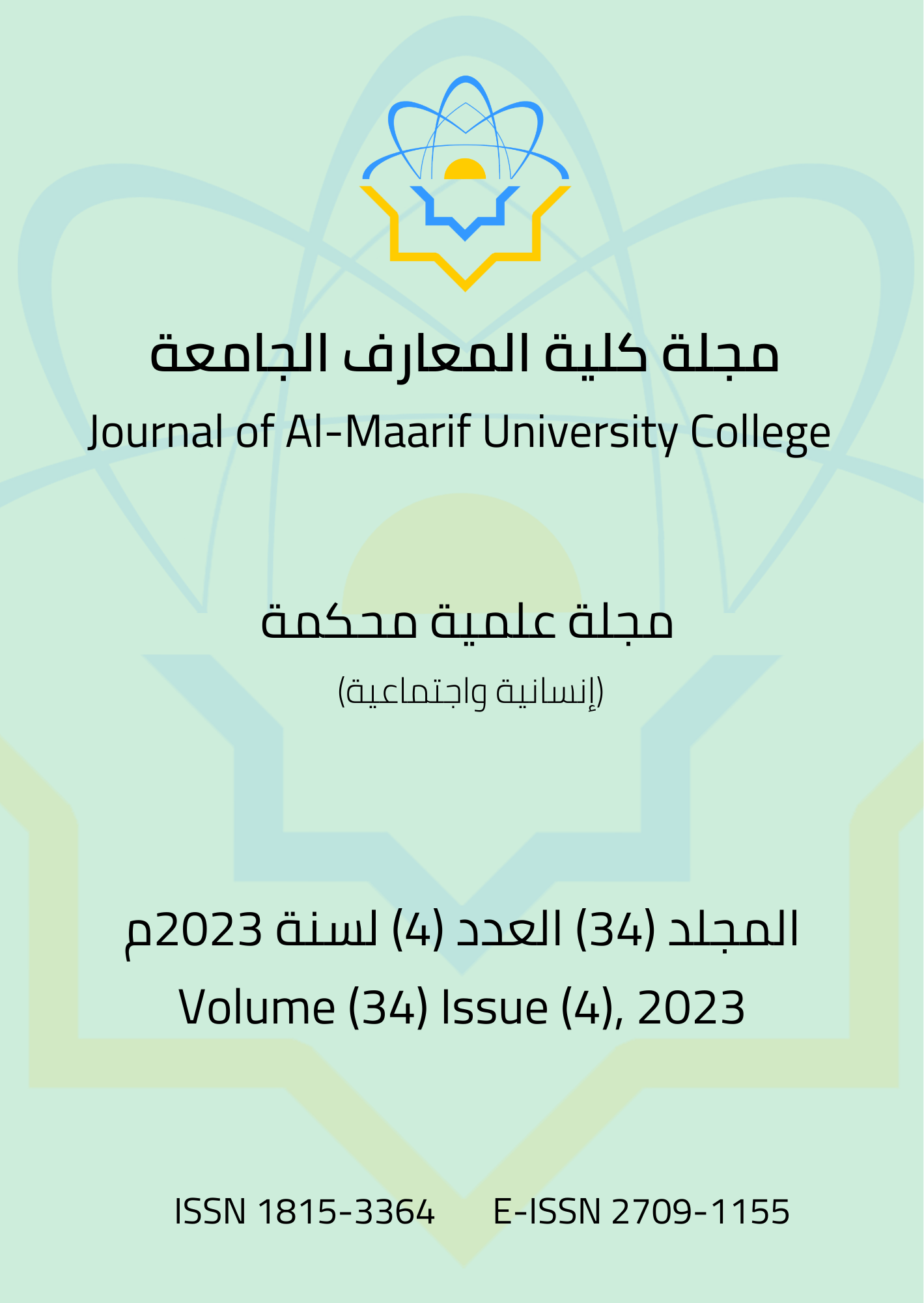The Unspoken in Theorizing and Application-The Abbasid Poet (Saleh Bin Abdul Quddus), As a Model
Main Article Content
Abstract
The dominant feature of ancient Arabic poetry and since its first inception in the pre-Islamic era was clarity and exposure, because the life that the Arab human was living at that time in that vast and extended desert, made him inclined to simplicity in living and marked him with clear and purity of thinking, but this life began in the ages Little by little, even if we reached the Abbasid era, which is - undoubtedly - the most prestigious literary era that Arab literature passed through in poetry and prose - the situation changed and life became complicated due to civilizational openness and the cross-fertilization of cultures, and since poetry is the mirror of society, it was influenced greatly and quickly by those changes that swept the Abbasid society at the time, The translated Greek, Indian, and Persian cultures had a clear impact on poetic creativity, and poets employed many of them, which served their poetic creativity and this affected their poetic language in its forms, patterns, and images, and the effect of this limited effect on their different methods of performance. One of the results of this influence also is that two different trends appeared in poetry: A trend that consists of paying attention to meanings, subdividing them and delving into them, with exaggeration in the insertion of philosophical meanings, mental doctrines, and subjecting poetry to logic, The Greek culture had the greatest impact in this direction. As for the second trend, it is related to the words and the decoration of phrases, and the embellishment of sentences, it prioritizes the pronunciation over the meaning and prefers everything that aids the events of poetic music, the Persian culture had the greatest impact on it. Renewal movements have appeared, and perhaps the most prominent of them is the revolt against the sacred column of poetry, which no poet would have dared to violate its rules and conditions. And new poetic phenomena have emerged that have become the subject of controversy and discussion between supporters and objectors, including the issue of ambiguity and vague that has shrouded the meanings of poetry, creating a communication crisis between the poet and the recipient. The poet's insistence suggests the magnitude of the challenge witnessed by that era and the necessity of accepting this renewal, which has become a clear poetic phenomenon, which has its supporters, with all the circumstances that it carries between endearing ambiguity and disliked vague. When the meanings became hidden behind the veils of symbols and verbal allusions, subject to the possibilities of interpretation. The approval of the recipients and a large audience of critics for this type of poetry and their pleasure in riding the difficult boat and diving to extract those mysterious meanings with effort and perseverance, and this wide space that has been revealed to them flying into the worlds of multiple meanings. Perhaps the rigidity of the view on the one meaning - which may kill poetry after its interpretation - all of this has opened another door and a reason for the poets to rely on when they feel the need to cover up the apparent meanings influenced by external or internal pressure, the meanings of which are intrinsic to them, To other meanings hidden behind the words, which prepared for a literary phenomenon that later became known as (The unspoken). In this study, which came on an introduction and two chapters: the first chapter is under the title of the unspoken in endoscopy and application, and it included four topics: The first topic: The unspoken, nature and significance, and the second topic: Synonyms and their accuracy in conveying meaning, and the third topic: Talking about it from the perspective of modern reception theory, and the fourth topic: Hiding in Abbasid poetry. The second chapter for application, under the title: The unspoken in the Poetry of (Saleh bin Abdul Quddus(. I will try to stand on this phenomenon, and the opinions that were said about it, especially in the literary and critical arena, in the ancient and modern times.
Article Details

This work is licensed under a Creative Commons Attribution-NonCommercial-ShareAlike 4.0 International License.

